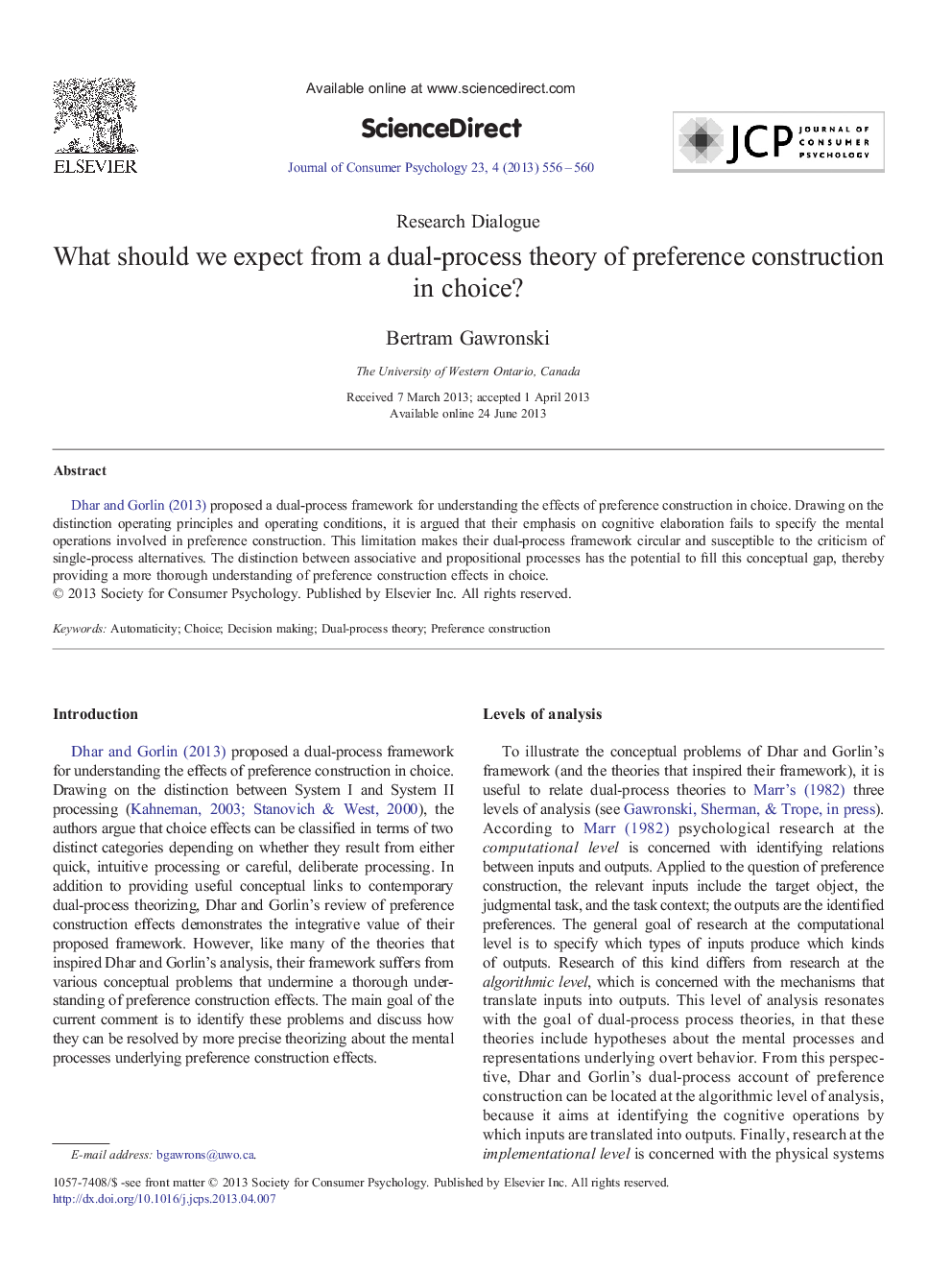| Article ID | Journal | Published Year | Pages | File Type |
|---|---|---|---|---|
| 882331 | Journal of Consumer Psychology | 2013 | 5 Pages |
Abstract
Dhar and Gorlin (2013) proposed a dual-process framework for understanding the effects of preference construction in choice. Drawing on the distinction operating principles and operating conditions, it is argued that their emphasis on cognitive elaboration fails to specify the mental operations involved in preference construction. This limitation makes their dual-process framework circular and susceptible to the criticism of single-process alternatives. The distinction between associative and propositional processes has the potential to fill this conceptual gap, thereby providing a more thorough understanding of preference construction effects in choice.
Related Topics
Social Sciences and Humanities
Business, Management and Accounting
Marketing
Authors
Bertram Gawronski,
